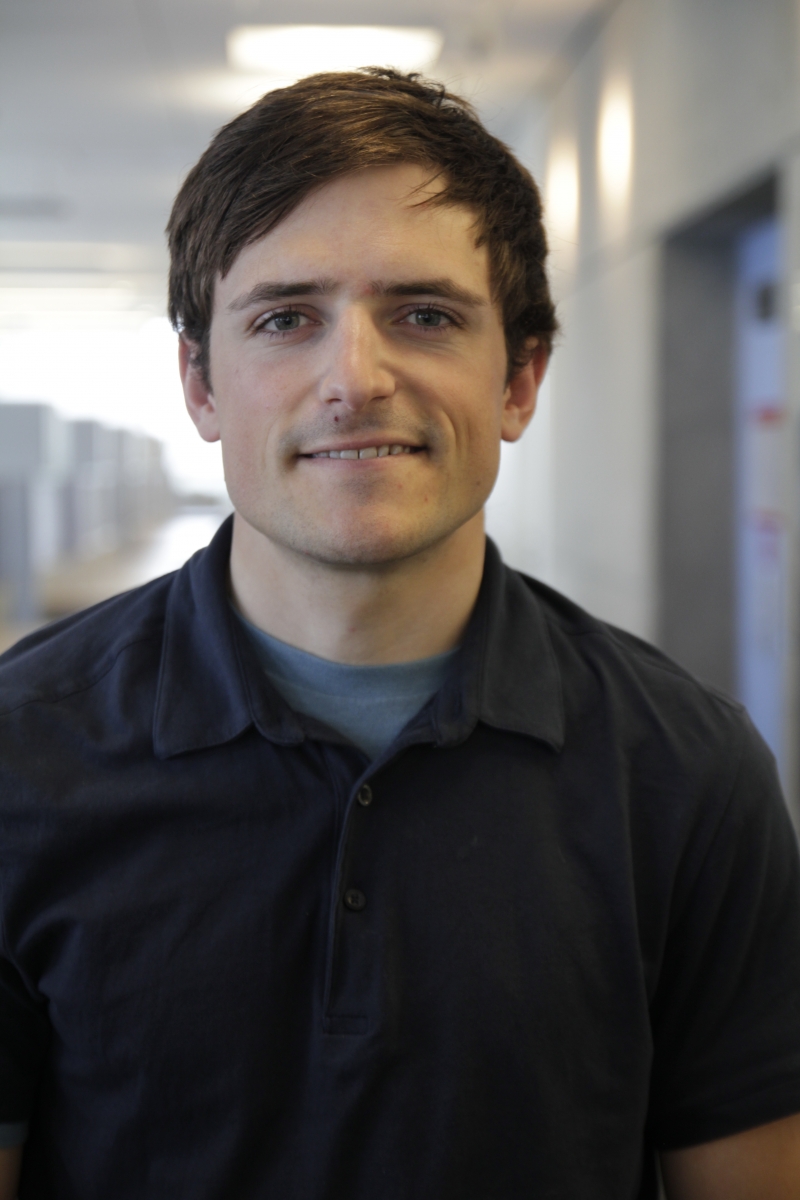
Mike Cancilla, MEng 2014 BME, completed his bachelor in Mechanical Engineering at the University of Western Ontario and spent two years working in mining and manufacturing before moving to Vancouver to attend UBC. In 2013, he joined forces with four other UBC engineers to launch the Drill Cover Project. A collaborative effort between UBC, Vancouver General Hospital and Mulago Hospital in Uganda, the project develops drill covers that enable surgeons to use a regular “hardware store” style power drill (costing $150) in the place of a high quality surgical power drill (costing $30,000) during trauma surgeries. AlumniUBC’s Trek Magazine recently published a video piece featuring the full story of Mike and his drill project (http://trekmagazine.alumni.ubc.ca/2014/may-2014/features/engineers-in-scrubs/).
Can you tell us a little bit about the work that you do?
I’m working as an engineering researcher at the Center for Hip Health and Mobility at Vancouver General Hospital, and I am primarily involved with the Drill Cover Project. With this solution, we are hoping to solve a serious surgical problem in lower resource countries, and ultimately to have a positive impact on global health.
If your work had a slogan, what would it be?
Access for all.
What is a fact about your work that people might find surprising?
The drill cover concept is much more complex than it first seems. Developing it to this point has taken a huge amount of thought and work, and there is still plenty more to come. In order to create a safe and effective medical product, you have to consider every risk.
Do you have a personal hero, either alive or deceased? If so, who are / were they?
Life is full of heroism, and every life can offer lessons to learn for personal inspiration. I take my lessons from as many sources as possible.
What do you consider your greatest achievement in life so far (personal, professional, or both)?
Winning the 2014 Medtech Award in Biomedical Engineering, and the success of the Drill Cover Project in general. I am incredibly excited to continue to learn and develop this project as far as possible.
What is one piece of technology that you couldn’t live without, and why?
I couldn’t live without my bike – it gets me everywhere from the top of Cypress Mountain to the grocery store and I love it.
What was your most memorable experience during your time at UBC, inside the classroom or outside?
Some of my most memorable experiences have come when exploring the coastal mountains with UBC’s Varsity Outdoors Club (VOC). They have offered me the chance to traverse glaciers, summit mountains and climb large vertical rock faces.
What was your “light bulb moment” in engineering? In other words, what made you realize that engineering was your chosen profession?
I wasn’t convinced engineering was my chosen profession until I first saw how I could apply my knowledge to solve simple problems for immediate impact. In other words, I am living my ‘light bulb moment’ currently!
What was your favourite thing to do on campus as a UBC student?
I’ll give you three: Friday lunches with UBC Sprouts in the SUB; standing in the center of the Echo Circle; and taking a break in between classes to do a hatha class with the UBC Yoga Club.
What are the top three things that you would recommend current engineering students do before they graduate?
1. Start a few side projects by applying your engineering skills to one of your passions. The project will be relevant to you so you’ll probably do a great job on it. If you do a great job, add it to your resume with plans, pictures, and results. Future employers will be impressed.
2. Learn how to listen. You will meet lots of people in the world who are willing to share their hard-earned knowledge with you if you are open to hearing it. Listen even if it isn’t relevant to you! You can always pick and choose the parts that apply to your life and discard the rest. Learning is a continuous process.
3. Relax! I found that yoga significantly helps me to do this in my life, but find whatever works for you.
As a postface to these recommendations, I would like to quote Hunter S. Thompson, from Letters of Note: “To give advice to a man who asks what to do with his life implies something very close to egomania. To presume to point a man to the right and ultimate goal — to point with a trembling finger in the RIGHT direction is something only a fool would take upon himself. I am not a fool, but I respect your sincerity in asking my advice. I ask you though, in listening to what I say, to remember that all advice can only be a product of the man who gives it.”
(Interview conducted by APSC Alumni Engagement: Alumni Spotlights)